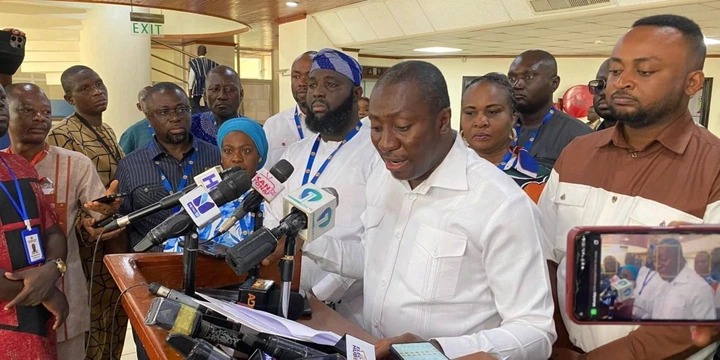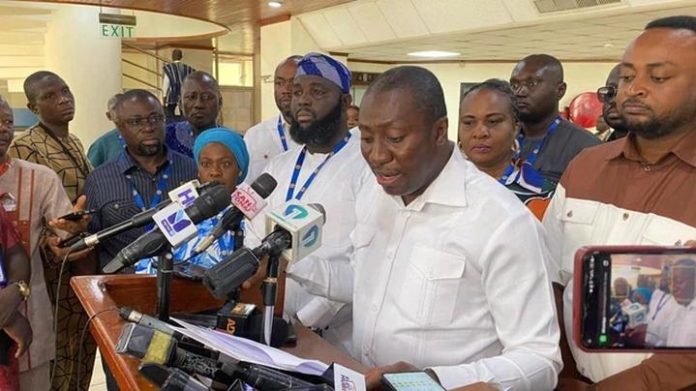According to Rainbow Radio Online, Socio-political analyst Alex Emmanuel Nti has strongly criticized Minority Leader Alexander Afenyo-Markin for his conduct during ministerial vetting sessions, accusing him of pursuing a political agenda rather than focusing on the qualifications of the nominees. Nti, speaking on Nyankonton Nsem on Rainbow Radio 87.5FM, suggested that Afenyo-Markin’s approach, particularly in his capacity as a ranking member of the Appointments Committee, seemed designed to appease the base of the New Patriotic Party (NPP).
Nti claimed that some of the questions posed by Afenyo-Markin appeared to be politically motivated, with the aim of settling scores rather than addressing the issues at hand. He also alleged that the Minority Leader had made biased comments prior to some nominees appearing before the committee, further fueling the political tension surrounding the vetting process.
“The chairman is not regulating the minority well and is allowing them to engage in a purely political agenda against the nominees,” Nti asserted, expressing concern about the negative impact such behavior could have on the vetting process. He went as far as to say, “They should stop Afenyo-Markin. Ghana is not for him, and I think he should be stopped. What he is doing is causing all the problems.”
According to Nti, Afenyo-Markin’s actions, including asking irrelevant questions, are undermining the integrity of the vetting process. He stressed that questions asked during the vetting should be relevant to the nominees’ designated sectors, and he called for a more focused approach.
Meanwhile, Dankwa, also known as Lazarus, a special aide to the Minority Leader, responded vehemently to Nti’s critique. He dismissed the analyst’s comments as biased, calling them unfortunate and accusing Nti of unfairly targeting Afenyo-Markin. Lazarus argued that the Minority Leader was simply performing his parliamentary duties and should not be intimidated by outside criticism.
He further defended the Minority Leader’s questioning, stating that it was crucial to vet not only the nominees’ competencies but also their integrity, candour, and humility. Lazarus also pointed out that the Minority Leader’s questions were in line with the information provided by the nominees during the vetting process, thus reinforcing the thoroughness of the process.
